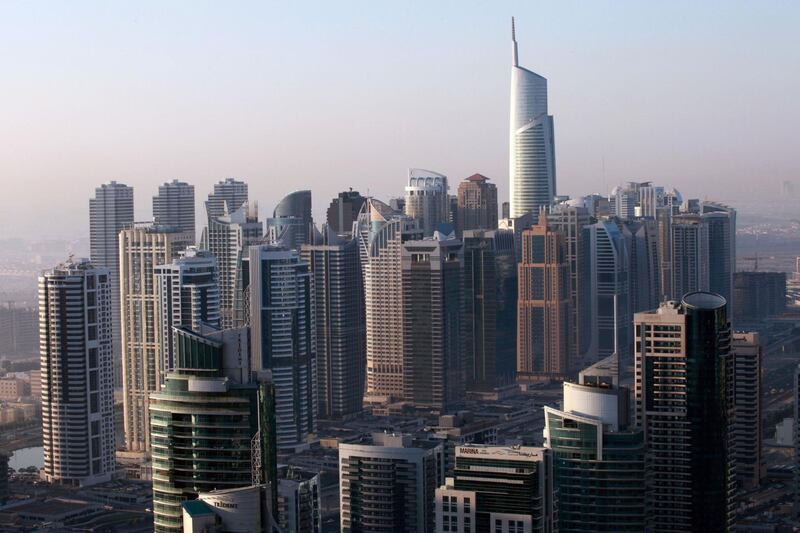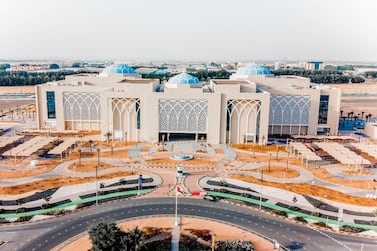The UAE is launching a new energy model to map out the country's energy transition over the next 50 years.
The energy and infrastructure ministry, Abu Dhabi-based International Renewable Energy Agency and Khalifa University launched the National Integrated Energy Model on Tuesday to drive more sustainability into the sector.
The new model will support the UAE's existing National Energy Strategy, which looks to add 50 per cent of clean energy into the country's power mix by 2050.
The strategy also aims to raise the efficiency of individual and institutional consumption by 40 per cent during that period.
"Clean energy is an essential part of the future energy mix, which the UAE takes into account when formulating national strategies and legislations," said Sherif Al Olama, undersecretary of the ministry of energy and infrastructure for energy and petroleum affairs.
Clean energy sources, including hydrogen, are emerging as alternatives to traditional energy sectors, he added.
The UAE, Opec's third-largest producer, is taking various steps to diversify its energy mix, including the formation of a hydrogen alliance earlier this year to step up its investment into the clean fuel.
Abu Dhabi National Oil Company, Mubadala as well as holding company ADQ, are all part of an ecosystem that aims to produce and export green and grey hydrogen.
Energy systems based on renewable energy sources are at the core of any national commitment under the Paris Agreement on Climate Change, said Irena director general Francesco La Camera.
The Paris Agreement, which the UAE has ratified, looks to lower global warming to well below 2°C above pre-industrial levels, preferably about 1.5°C.








